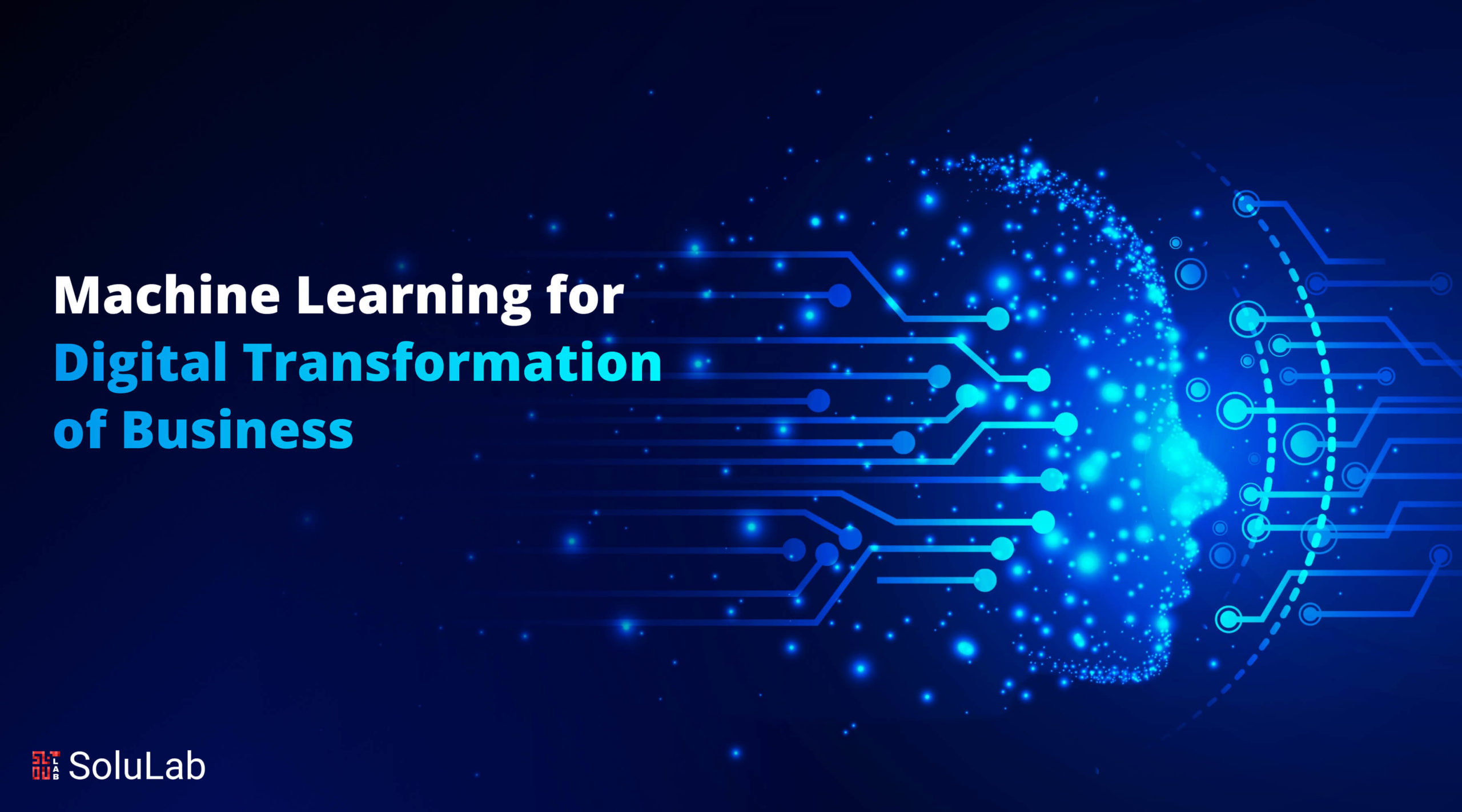
Businesses are increasingly adopting new technologies to stay competitive. One of the most influential technologies enabling this transformation is machine learning (ML). Machine learning helps organizations automate processes, analyze large datasets, and make more informed decisions. To successfully integrate machine learning into business processes, partnering with a machine learning services company like Svitla Technologies can help ensure smooth implementation. This article explores how machine learning acts as a key driver of business digital transformation, providing benefits, real-world applications, and future trends for businesses to consider.
Machine Learning as a Key Enabler of Business Digital Transformation
Machine learning plays a crucial role in business digital transformation, enhancing automation and improving decision-making processes. By leveraging data and advanced algorithms, machine learning allows businesses to optimize various aspects of their operations. It not only helps reduce human error but also accelerates processes that would otherwise take significantly longer. Through AI in business, machine learning brings about improvements in various sectors, making them more agile and data-driven.
As organizations aim to stay competitive, the implementation of machine learning tools ensures they can adapt quickly, improve efficiency, and predict market trends with greater precision. Integrating artificial intelligence for business has become essential for organizations that want to keep up with rapid technological advancements.
Benefits of Machine Learning in Transforming Business Operations
Machine learning brings substantial advantages when applied to business automation and operational processes. Organizations that implement ML-based systems benefit from enhanced predictive analytics, better resource allocation, and improved customer insights. These benefits contribute to more informed decision-making, driving growth and innovation.
-
Improving Operational Efficiency with AI
Machine learning algorithms enable businesses to automate time-consuming tasks, improving operational efficiency across multiple departments. In industries like manufacturing, supply chain optimization becomes more effective, while inventory management is automated. Through predictive maintenance, organizations can foresee equipment malfunctions and schedule repairs before costly breakdowns occur. By automating these routine tasks, businesses save time, reduce operational costs, and ensure smoother workflows.
-
Enhancing Customer Experience Through Personalization
Machine learning plays a key role in enhancing customer experiences through personalized marketing and tailored product recommendations. By analyzing past customer behaviors, machine learning systems predict preferences, enabling businesses to create more personalized experiences. For example, e-commerce platforms can suggest products based on previous purchases or browsing history, increasing conversion rates and fostering customer loyalty. Personalization not only improves customer satisfaction but also creates a more engaging shopping experience.
Key Industries Benefiting from Machine Learning in Digital Transformation
Different industries are reaping the rewards of machine learning as they undergo digital transformation. From healthcare to finance, machine learning is optimizing processes, improving outcomes, and driving innovation.
| Industry | Application | Benefit |
| Healthcare | Predictive analytics, diagnostics, drug discovery | Improved patient outcomes and faster medical advancements |
| Finance | Fraud detection, risk assessment, algorithmic trading | Enhanced security and more efficient financial transactions |
| Retail | Customer insights, recommendation systems | Better-targeted marketing and increased sales |
| Manufacturing | Predictive maintenance, quality control | Reduced downtime and optimized production efficiency |
-
Healthcare and Medical Advancements
Machine learning has made significant strides in the healthcare sector, particularly in predictive analytics and diagnostics. By analyzing patient data, ML algorithms can identify potential health risks and suggest proactive measures. In drug discovery, ML models speed up the identification of new medications, accelerating the process of finding cures for diseases. This leads to improved patient outcomes and more effective treatments.
-
Finance and Risk Management
In the finance sector, machine learning is used extensively in fraud detection and risk assessment. ML algorithms analyze transaction patterns and identify anomalies, helping financial institutions detect fraudulent activities in real-time. Additionally, ML is applied in algorithmic trading, enabling faster and more accurate trading decisions. These innovations improve security, reduce financial risks, and enhance customer trust in financial institutions.
Challenges in Implementing Machine Learning for Business Transformation
Despite its many benefits, the implementation of machine learning presents challenges. Companies must overcome hurdles such as data quality, resource constraints, and the need for specialized talent. Understanding these obstacles and addressing them is crucial for successful ML integration.
-
Overcoming Data-Related Challenges
One of the primary challenges in leveraging machine learning is the availability of clean, structured data. ML algorithms rely heavily on accurate and high-quality data to produce reliable insights. Businesses must ensure their data is properly cleaned, organized, and free from inconsistencies to avoid incorrect predictions. Data governance practices and robust data management systems are essential to overcoming this challenge.
-
Talent and Resource Constraints
Another obstacle in adopting machine learning is the shortage of skilled professionals. Companies need data scientists, machine learning engineers, and other specialists to implement and maintain these systems. The lack of qualified talent can delay the adoption process and hinder the efficiency of ML projects. Investing in training or partnering with a machine learning services company like Svitla Technologies can provide machine learning python course free to help organizations bridge this gap.
The Future of Machine Learning in Business Transformation
As machine learning continues to evolve, its role in business digital transformation will grow even more profound. Emerging technologies like self-learning algorithms and autonomous systems will further streamline processes, improve decision-making, and enable businesses to operate with greater autonomy. Machine learning will continue to drive innovation, making it an essential part of the future business landscape.
-
Emerging Trends to Watch
Some of the key trends in machine learning include advancements in automated decision-making, where systems can independently make data-driven decisions without human intervention. Additionally, AI governance will play a crucial role in ensuring ethical and fair use of machine learning technologies as they become more integrated into business processes.
Embracing Machine Learning for Business Success
In conclusion, machine learning is a crucial enabler of business digital transformation. By improving efficiency, enhancing customer experiences, and driving innovation across industries, machine learning has become a game-changer for businesses. While challenges exist, the potential benefits far outweigh them, and companies that embrace machine learning will be better positioned for success in the digital age.




